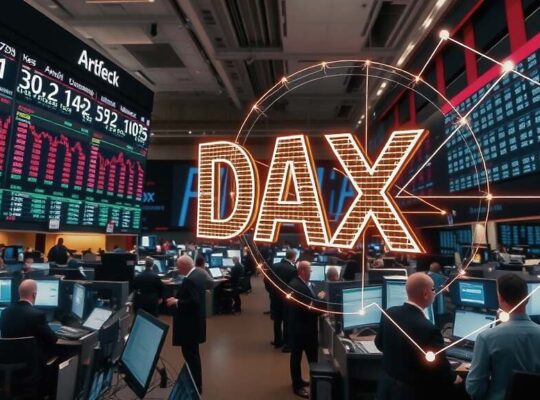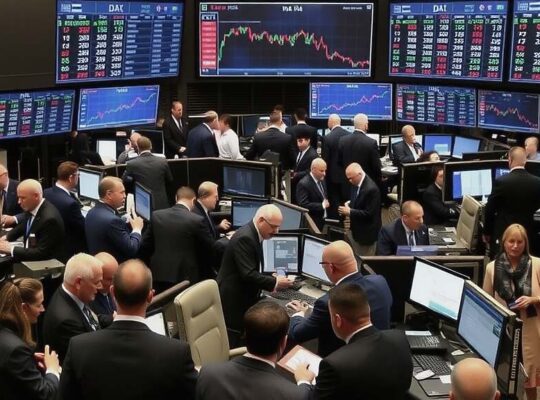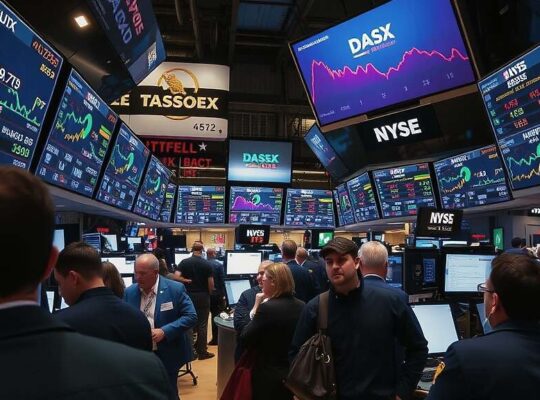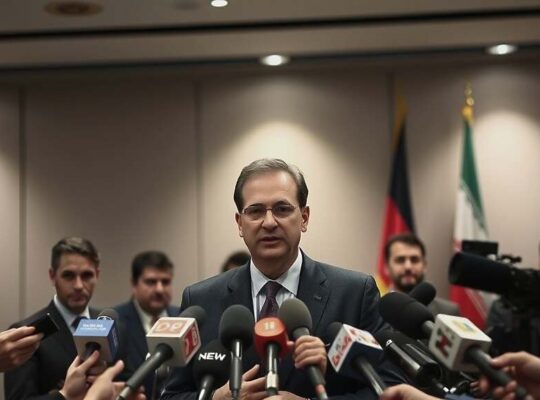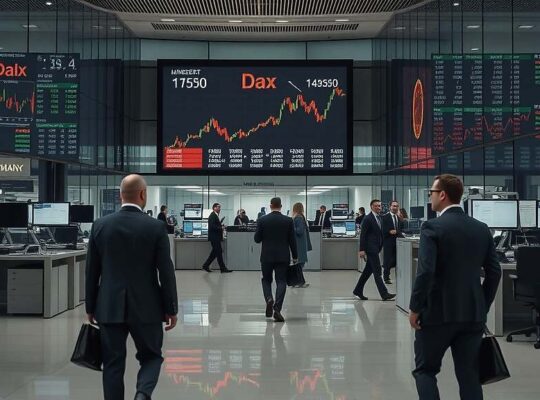Global markets responded with cautious optimism Monday as a temporary resolution to the US budget impasse spurred a rally across European equities. The German DAX index opened strongly, climbing to approximately 23,905 points – a 1.4% increase from Friday’s closing level. Siemens Energy, Commerzbank and Hannover Rück saw the largest gains, while Deutsche Telekom, Eon and Vonovia trailed, suggesting a complex interplay of factors influencing investor sentiment.
The reprieve from a potential US government shutdown, secured through a compromise agreement between Democratic and Republican lawmakers on Sunday evening, is the primary driver of the market’s positive reaction. However, analysts caution that the fragility of the agreement remains a significant concern. While the deal secures funding until the end of January, the prospect of a renewed standoff looms large, potentially reigniting volatility and undermining economic stability.
“The markets are exhibiting considerable relief” stated Thomas Altmann of QC Partners. “This agreement avoids inflicting further damage to the US economy. However, the underlying tensions remain unresolved and the drama is likely to recur in January when this interim budget expires”. This sentiment highlights a broader anxiety within the financial community, reflecting the increasingly polarized political climate in Washington and its potential ramifications for global economic growth.
The market’s initial positive response also followed a Friday evening shift in Wall Street trends, foreshadowing the broader European gains. However, the initial reactions were muted on Friday due to market closure. The delayed incorporation of the potential shutdown resolution into Asian and European trading hours proved more impactful Monday.
The euro strengthened slightly, trading at $1.1572, reflecting the ongoing fluctuations in currency values linked to geopolitical uncertainties and evolving investor risk appetite. Oil prices also saw a rise, with Brent crude futures climbing to $64.12 per barrel, demonstrating the sensitivity of energy markets to political developments and potentially signaling rising demand amid a period of perceived economic stability.
The situation underscores the precariousness of global economic forecasts, firmly tethered to the volatile rhythms of political negotiations and highlighting the critical need for long-term, sustainable policy solutions rather than short-term compromises.



